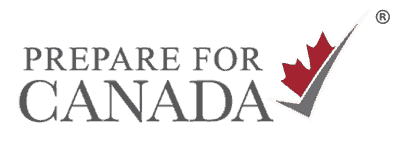
Communication skills are important for two primary reasons. Firstly, if you apply for Permanent Residence (PR) in Canada you must have strong language skills. You need to show that you can communicate in either of Canada’s official languages: English or French. And you have to provide proof of your language results from an organization that the Canadian government approves. For example, the International English Language Testing System (IELTS) is a common tool to show your language skills.
Secondly, one of the most important skills that Canadian employers look for is the ability to communicate effectively. Regardless of your title, profession, or industry, strong communication skills will help you to achieve success. Employability skills include your ability to manage information, think and solve problems, use numbers, use digital tools, and communicate.
Advertisement:
Employability skills are the skills you need to enter, go through, and grow in the world of work. Understanding and applying these skills will help you create a set of tools to improve your ability to grow and do well in the workplace and beyond.
Conference board of canada, 2022
In 2022, the Conference Board of Canada, in partnership with FutureSkills Centre, defined communication skills as a fundamental skill. Other employability skills include:
Advertisement:
The goal was to identify the top skills that Canadian employers seek. The research showed that employers seek these top three skills:
- Soft skills (social and emotional skills)
- Personal management skills, and
- Teamwork skills.
Communication Skills Defined
While language and communication skills are essential for most jobs, what exactly does that mean? And, how do you show that you have proficient language skills?
To succeed in the workplace, it’s essential to communicate with managers, co-workers, clients, suppliers, and customers. Strong communication skills include:
- Writing
- Reading
- Speaking
- Listening
In the workplace, you require:
Writing Skills
Strong writing skills are vital for many jobs. Writing skills include your ability to write clearly and concisely. This can include:
Advertisement:
- Writing effective emails
- Writing compelling presentations and reports
- Reviewing and proofreading your writing.
Reading Skills
Reading skills include your ability to read and understand:
- Forms, memos, policies
- Graphs, charts, diagrams
- Complex information such as journals and articles.
The level and type of reading requirements will vary based on the type of work that you do.
Listening Skills
Listening skills include verbal and non-verbal responses to show the speaker that you are engaged in what they are saying. Active listening allows you to hear, understand, and respond in a meaningful way to the speaker.
This is an important skill to help you build relationships and trust with managers, co-workers, and others you work with.
Active listening includes:
- Paraphrasing what you heard the speaker say in your own words
- Asking open-ended questions that allow the speaker to provide more information.
- Limiting closed-ended questions (questions that require a yes or no answer)
- Giving verbal and non-verbal feedback that shows interest in the speaker.
Non-verbal feedback such as nodding your head shows that you understand what the speaker is saying without interrupting them. It’s a helpful cue that you give to the speaker. Other non-verbal cues include:
- Smiling
- Maintaining eye contact
- Removing distractions such as your cell phone, papers on your desk, and closing your laptop.
Active listening allows you to focus on the speaker, listen, and understand another point of view. All skills that will help you to succeed in the workplace.
Speaking Skills
Strong speaking skills allow you to influence others such as managers, co-workers, and customers. Whether you manage a team or are a team member, speaking skills allow you to convey ideas effectively and persuade others.
Speaking skills are helpful for most positions and important for any customer-facing role.
Developing “Soft Skills” in the Canadian Workplace
Many newcomers misread their struggle to acquire employment and look to add to their already long list of educational credentials. This is good, but you also need your soft skills to succeed.
Soft skills are a critical factor for success in Canada because when employers ask about “Canadian experience”, they are looking for candidates who can easily adapt to the workplace. They want assurance that you are a match for the job and the workplace culture. When looking for work in the Canadian job market, it’s vital to put your best foot forward.
What Exactly are Soft Skills?
Soft skills remain out of the grasp of many people because Canadians have difficulty articulating what “soft skills” actually include, beyond interpersonal skills. Hard skills are related to your technical ability, credentials, and relevant experience that you already have in abundance. On the other hand, soft skills, or people skills describe how you connect with others, build relationships, solve problems, and interact with others.
Certainly, communication skills are a part of the soft skills package, but it’s only a part. Within communication skills, is the capacity to network with others (which includes the art of small talk), effectively communicate (verbally and non-verbally), work in teams, collaborate with others, and demonstrate empathy. While your hard skills and resume will get you an interview, it is your ability to present yourself in the interview that will make you stand out. This is an important piece of the puzzle and without developing these skills, you may find it difficult to get past the initial interview.
How to Improve Your Communication Skills
Mastering your language and communication skills will help you when you apply to work in Canada. Employers will see your strong communication skills as a strength and help you to stand out among other applicants.
Many settlement services also provide free language instruction. Settlement agencies exist across Canada and can help you with many services such as job-specific language training to help you excel in the workplace.

Related Posts:
Working in Canada | A Guide to Land Your Dream Job
Getting Your Skills Assessed to Work in Canada
Optometrist Employment & Job Requirements in Canada
Pharmacist Jobs in Canada | Everything Newcomers Need to Know
Sales and Marketing Employment & Job Requirements in Canada
When you’re comfortable with your communication skills, you will be more confident in job interviews. As well, strong communication skills will help you to excel in the workplace.
Government Language Skills Programs
The Canadian government funds many language programs. These programs are available through settlement services, or you can improve your language through the Language Instruction for Newcomers to Canada (LINC) program.
The LINC program provides free instruction to improve basic language skills such as speaking and writing in English or French. To find a LINC program, click on the links below for the province where you plan to settle:
Benefits of Taking Language Classes
Language classes that the government of Canada funds are:
- Taught by qualified and experienced teachers
- Available in a classroom with other students or online
- Available to take full-time, part-time, and during the day, evening, or weekends.
You can take language classes at community organizations, schools, and colleges. Other benefits are meeting other newcomers and boosting your confidence when you take your language skills to the next level!
What is IELTS?
IELTS (International English Language Testing System) is a popular English language test. It is commonly used by schools and organizations to assess and measure language skills. IELTS test is also one of the language tests that Canada will accept for people who want to immigrate to Canada.
Some professions in Canada including, engineering, law, medicine, and teaching require a minimum IELTS score. For example, to work as a teacher in Ontario, you require a minimum IELTS score of:
- 6.5 for reading and listening
- 7 for writing and speaking.
Organizations like British Council IELTS can help you improve your communication skills with webinars, practice materials, tests, and free online courses.

It’s important to research your profession in Canada to see if you must meet an IELTS requirement.
Communication skills are important because they will ensure your success in the workplace. You can develop your communication skills at home, school, work, and in your community. And many people can help you to build these skills such as your family, friends, neighbours, and co-workers.
For more information, tools, resources, and free webinars visit our finding a job in Canada resource page. Get the help you need to achieve your career goals in Canada!
Corinna Frattini is the content marketing strategist at Prepare for Canada and contributes articles related to working in Canada. With a background in human resources and leadership development, her articles focus on what Canadian employers seek and how newcomers can continue their careers in Canada.

